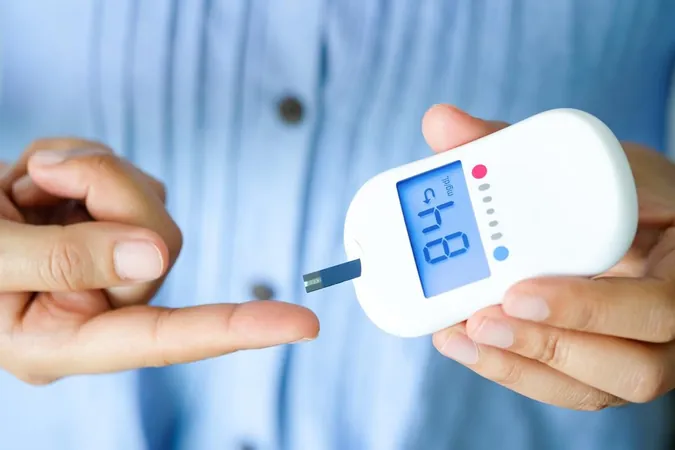
Groundbreaking Study Reveals Inhaled Insulin as Effective Alternative for Type 1 Diabetes Management!
2024-12-16
Author: Wei Ling
Groundbreaking Study Reveals Inhaled Insulin as Effective Alternative for Type 1 Diabetes Management!
In an exciting advancement for the treatment of type 1 diabetes, a new study has demonstrated that a regimen of inhaled Technosphere insulin (TI) combined with insulin degludec is as effective as traditional care methods for managing blood glucose levels in adults. This transformative finding was reported in a study published on December 6 in the journal Diabetes Care.
Led by Dr. Irl B. Hirsch from the University of Washington in Seattle, this research involved a comprehensive examination of TI and insulin degludec in a population of adults predominantly using automated insulin delivery (AID) systems or multiple daily insulin injections (MDI) alongside continuous glucose monitoring prior to the study. Conducted across 19 sites, the study randomly assigned a total of 123 participants—62 to the TI plus insulin degludec regimen and 61 to the usual care group—for a period of 17 weeks.
Results from the study revealed that the mean hemoglobin A1c levels, an important indicator of blood sugar control, were nearly equivalent between the two groups, with the TI group showing a median A1c of 7.57% at the start of the trial and 7.62% after 17 weeks. In comparison, the usual care group had mean A1c values of 7.59% and 7.54%, respectively, showcasing the noninferiority of the inhaled therapy.
Remarkably, the study noted that 21% of participants in the TI group improved their hemoglobin A1c by more than 0.5%, whereas only 5% in the usual care group achieved this milestone. However, it's important to note that some participants experienced challenges; 26% in the TI group saw their A1c worsen by over 0.5%, compared to just 3% in the usual care group. The most common side effect reported by users of Technosphere insulin was a brief cough, prompting eight participants to discontinue its use due to adverse reactions.
The authors highlighted the importance of careful patient selection when considering TI as a therapeutic option for managing type 1 diabetes. As Dr. Hirsch stated, “While the results support the use of Technosphere insulin as a viable treatment option, understanding the patient journey is crucial.”
With several authors acknowledging connections to pharmaceutical companies, including MannKind, which funded the study, these findings may pave the way for more widespread use of inhaled insulin in diabetes management. Will this innovative approach revolutionize how we treat type 1 diabetes? Only time will tell, but it certainly opens the door to new possibilities in diabetes care! Stay tuned for further developments in this field.





 Brasil (PT)
Brasil (PT)
 Canada (EN)
Canada (EN)
 Chile (ES)
Chile (ES)
 España (ES)
España (ES)
 France (FR)
France (FR)
 Hong Kong (EN)
Hong Kong (EN)
 Italia (IT)
Italia (IT)
 日本 (JA)
日本 (JA)
 Magyarország (HU)
Magyarország (HU)
 Norge (NO)
Norge (NO)
 Polska (PL)
Polska (PL)
 Schweiz (DE)
Schweiz (DE)
 Singapore (EN)
Singapore (EN)
 Sverige (SV)
Sverige (SV)
 Suomi (FI)
Suomi (FI)
 Türkiye (TR)
Türkiye (TR)